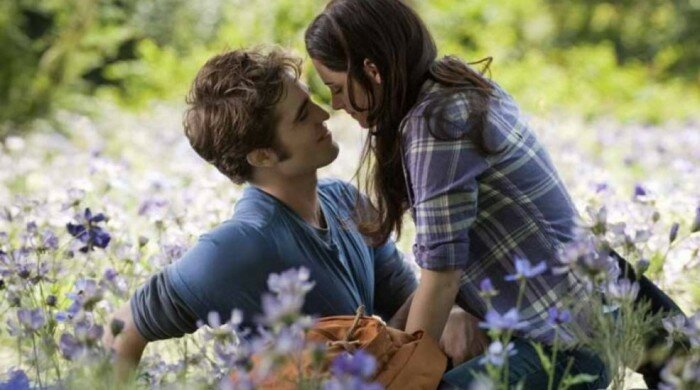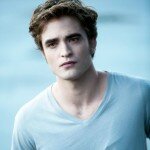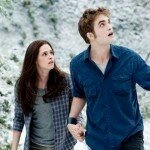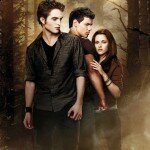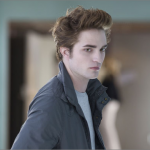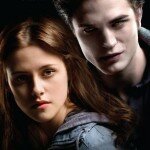With the opening image of The Twilight Saga: Eclipse, the franchise reveals its own piece of Adelaide; Xavier Samuel’s introduction to Hollywood couldn’t possibly be any bigger. The tasty morsel you can sink your teeth into provides a good introduction to the best film in the series yet – an unexpected surprise that reveals the lack of standard the first two truly set.
The story hits a higher gear by the third chapter, with Bella (Kristen Stewart) about to graduate high school and pressuring her beloved Edward (Robert Pattinson) to ‘turn’ her before she becomes another year older. Those aware of the saga will know it’s not as easy as a simple bite, with complications coming from the authority of Bella’s father Charlie (Billy Burke) and best friend Jacob (Taylor Lautner). There’s also vengeful villain Victoria (Bryce Dallas Howard) and new apprentice Riley (Samuel) who see to an unrestful period for the Cullens and Bella. There’s a bit of shift in romance here too to throw an extra spanner in the works, and Bella finds herself torn between the two forms of lives she could lead. It’s a welcome change from the constant gushing of lust for Edward, as they move forward with their relationship amongst various hurdles. Add to that entertaining history about some of the Cullen family and the Quileutes and you have a vampire story with enough edge to keep the story going for two hours.
Twi-hards will not be disappointed – the material is almost identical to the book; screenwriter Melissa Rosenberg rigid in Jacob’s repeatedly emphasised love for Bella (some might say there’s too much). What should please neutral viewers is the toning down of teenage-targeted cheese, and the improved action sequences and (for the most part) special effects. This includes the hotly-debated ‘sparkle’ – Edward seems to react to the sun a bit better these days. But as serious as Eclipse is in its overall story, it still finds time to play up on its phenomenon with quips between Edward and Jacob taking on double meanings. The ideas of love triangles and romantic traditionalism are Hollywood staples, and if the first two films didn’t, this one certainly has a cinematic feel within its subplots and engrossing score. The production budget has been well spent in creating a bleak but consuming world, and knowing more of the characters’ backstories improves understanding. If you were to look at it moralistically as saga author Stephenie Meyer likely would, it’s a chance to revisit what good humans can do in the lives they lead.
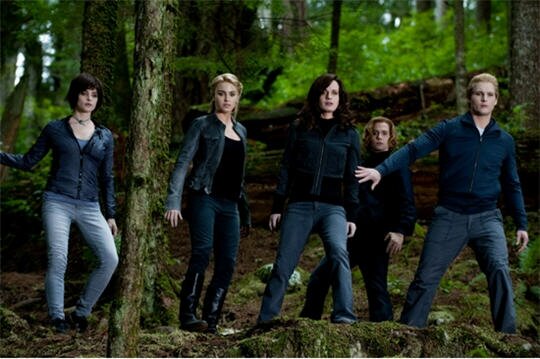
Films that preach the understanding of choice are anything but rare. But we see forced choice creep into Eclipse; Howard replaced Rachael LeFevre as Victoria, then director David Slade choosing to minimise her full profile on screen. It’s hardly a coincidence – but Howard does her best to make Victoria her own. Samuels impresses in his breakout role and is certain to be added to teen heartthrob lists worldwide. Pattinson and Lautner have grown well into their roles; their banter’s hardly forced and they appear comfortable, while Stewart continues to predominantly appear vacant and still has a lot to learn about articulation. But overall, Eclipse is a huge improvement on its predecessors. That could be a result of the story’s ‘strength’ in novel form (compared to other plots that is), but for one of cinema’s biggest modern franchises it needs all the help it can get before even the Twi-hards see it as a money-spinning ploy.
Verdict:
The Twilight Saga: Eclipse surprises with (much needed) improvement; the first real blockbuster of the franchise.
—
What’s Twilight Eclipse like from a male non-fan’s perspective? Find out here.
 Follow the author Katina Vangopoulos on Twitter.
Follow the author Katina Vangopoulos on Twitter.

